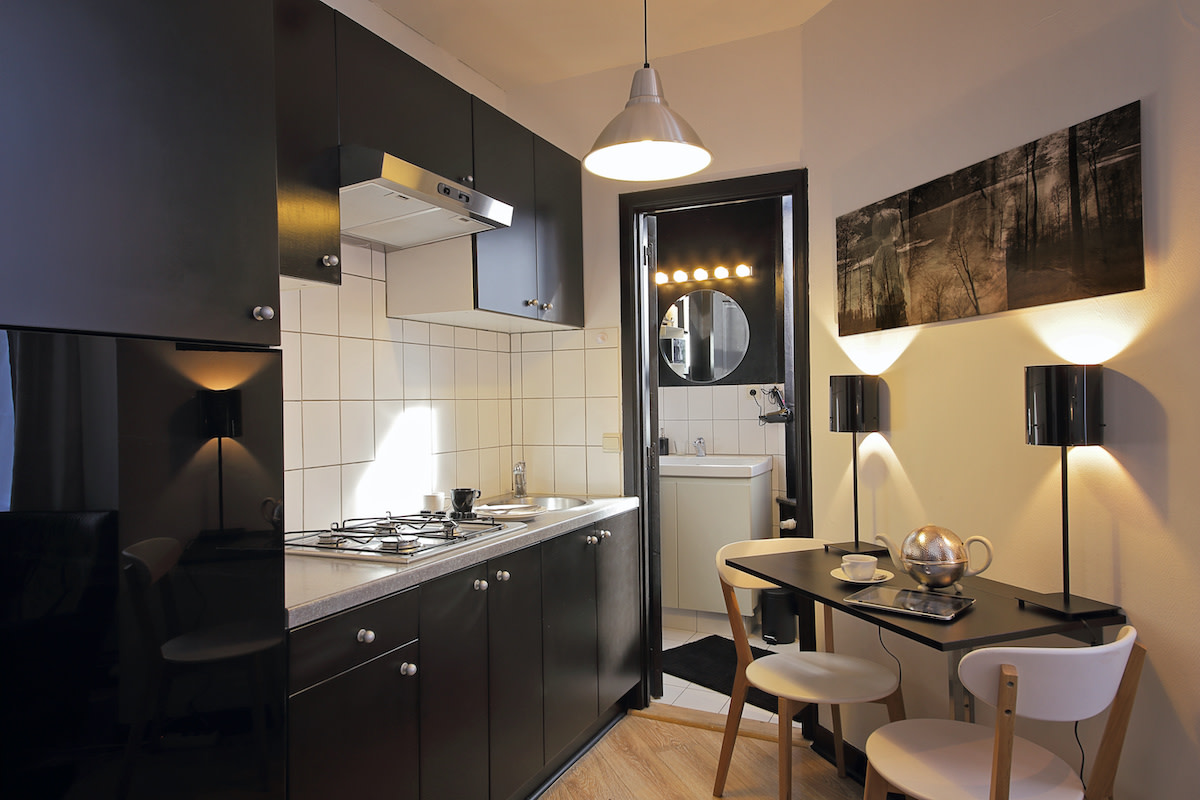Mother-In-Law Apartments: Pros and Cons of In-Law Suites
Written by MasterClass
Last updated: Jun 7, 2021 • 3 min read
A mother-in-law apartment is a popular way to offer a comfortable place for relatives and guests to stay in your home, and add value to your floor plan.
Learn From the Best
What Is a Mother-In-Law Apartment?
A mother-in-law apartment (also called an in-law suite or granny flat) is a small, private living area within a family house. This area can be attached to the main home, usually in a walk-out basement apartment or as a first-floor attachment or stand-alone in the nearby yard. Traditionally designed to offer a comfortable long-term living situation for aging parents or grandparents, contemporary homeowners may also use this space for home gyms, private offices, rental spaces, or guest quarters.
What Is the Basic Layout of a Mother-In-Law Apartment?
Typical mother-in-law apartments may feature the following floor plan:
- Bedroom: An essential feature of a mother-in-law apartment is a comfortable bedroom. Adequate storage space (like a walk-in closet or large chest of drawers) for clothing and other personal belongings is vital for long-term occupants.
- Full bathroom: Most in-law apartments feature a full bath—which includes a toilet, sink, bathtub, and shower—to offer occupants independence from the main house.
- Private entrance: While not strictly required, a separate entrance is a common feature of in-law apartments since it provides extra independence and privacy for occupants.
- Other home comforts: Mother-in-law suites can include additional features as space allows, like a small full kitchen or kitchenette, a small dining room or area, and a small living space.
What Are the Advantages of Having a Mother-In-Law Apartment?
Building a mother-in-law apartment in or nearby your home can offer many advantages:
- A comfortable safety net for loved ones. If you eventually plan to have an in-law or two move in with you, a mother-in-law suite can be a beneficial addition to your home. It transforms a single-family home into an opportunity for intergenerational living and offers a housing setup that can still provide privacy and independence for its occupants. Even if you don’t plan on having in-laws, adult children, or other relatives move in, having a mother-in-law apartment can also serve as a helpful safety net if the situation suddenly arises.
- Increases the value of your home. Some homebuyers are attracted to home plans with mother-in-law apartments and are willing to pay extra for real estate with built-in suites.
- Can rent it out for extra income. Mother-in-law apartments have uses outside of housing loved ones: Homeowners can rent the space to short- or long-term guests for additional income. If the laws in your area allow you to designate your in-law suite as an accessory dwelling unit (ADU), you may also be eligible to rent it out as a one-bedroom or studio apartment to long-term tenants.
- Offers privacy to overnight guests. In-law suites can also serve as extra-private guest bedrooms or guesthouses. Whether your guests stay for a single night or long-term, they’ll have their own entrance and necessary amenities.
- Can serve as a home office or other private space. When the living area is not in use, homeowners can use the space for personal purposes like a home workspace or private art studio.
What Are the Disadvantages of Having a Mother-In-Law Apartment?
Building a mother-in-law apartment in or nearby your home has some disadvantages:
- Expensive to build: Converting your car garage or finished basement into an in-law suite or building an addition in the backyard can be pricey. These remodeling costs can add up quickly, especially if you need to route new plumbing, electrical, or gas lines into the unit. Consider reaching out to home builders in your area for estimates before deciding to move ahead with an in-law suite addition.
- Subject to city ordinances: In-law suites can be subject to many zoning laws and local regulations, including building codes, like square footage limitations, and operating rules, like rental limitations or required insurance premiums. You’ll need to check with local rules before deciding to add an in-law suite to your house plan.
- Require extra upkeep: Mother-in-law apartments require cleaning, care, and maintenance, just like any other part of the home, whether or not guests stay in them. In addition, short-term rentals require cleaning and maintenance in between guests.
- Potential vacancies: In situations where you don’t have relatives, guests, or renters staying in your in-law suite, the apartment may stand empty and take up square feet that you may otherwise prefer to use for other activities, like backyard space or a basement living room.
Ready to Learn the Ins and Outs of the American Housing Market?
All you need is a MasterClass Annual Membership and our exclusive video lessons from prolific entrepreneur Robert Reffkin, the founder and CEO of the real estate technology company Compass. With Robert’s help, you’ll learn all about the intricacies of buying a home, from securing a mortgage to hiring an agent to tips for putting your own place on the market.
